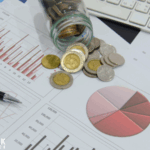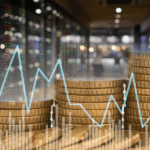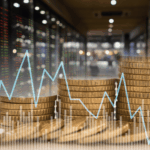Consumer spending patterns in the United States are diverging sharply, with higher-income households continuing to spend on luxury goods and travel while lower-income groups reduce their expenses. Despite economic uncertainties, affluent consumers are making up a significant portion of total spending, raising questions about the long-term implications for economic stability. Recent data suggest that the top 10% of earners are driving nearly half of all consumer spending, a trend not seen in previous decades. Analysts are closely watching how this affects overall economic growth, especially as other consumer segments face financial strain.
In previous years, consumer spending was more evenly distributed across different income levels. However, the latest data indicate that wealthier households are now responsible for a significantly larger share of total expenditures than they were three decades ago. This shift has made the economy increasingly reliant on high-income earners, a dynamic that could have major consequences if their spending habits change due to external factors such as economic downturns or policy shifts.
How Much Are Wealthy Consumers Spending?
Households earning at least $250,000 per year have increased their spending by 12% over the past year. This rise in expenditures includes purchases of luxury goods, travel, and other high-end experiences. According to Moody’s Analytics, this segment alone is responsible for nearly one-third of the U.S. gross domestic product. In contrast, working-class households have begun cutting back on expenses, reflecting a growing divide in financial stability.
What Impact Does This Have on the Economy?
The growing dependence on high-income consumers for economic growth means that any slowdown in their spending could have widespread effects. Mark Zandi, chief economist at Moody’s Analytics, stated,
“The finances of the well-to-do have never been better, their spending never stronger and the economy never more dependent on that group.”
This reliance makes economic forecasts more uncertain, especially with concerns about inflation and potential policy changes that could affect high-income spending patterns.
While wealthier Americans continue to spend at rates well above inflation, the majority of consumers have not kept pace. The bottom 80% of earners have increased their spending by 25% over the past four years, while inflation has risen by 21%. Meanwhile, the wealthiest 10% have increased their expenditures by 58%, highlighting the disparity in financial resilience between income groups.
Despite robust spending by high-income consumers, concerns persist about the sustainability of this trend. Recent surveys indicate that affluent individuals remain cautious about future financial conditions, particularly with the potential introduction of tariffs on imported goods. The University of Michigan’s Surveys of Consumers reported a 9.8% decline in consumer sentiment, with a notable drop in confidence regarding purchasing durable goods. Joanne Hsu, director of the survey, explained,
“The trend was led by a 19% plunge in buying conditions for durables, in large part due to fears that tariff-induced price increases are imminent.”
These concerns suggest that even wealthier consumers could become more conservative in their spending if economic conditions shift.
The increasing reliance on high-income consumers poses risks for economic stability if their spending slows. If external factors such as inflation or tariffs lead to reduced purchasing activity, the broader economy could face challenges. Historically, consumer spending has been a key driver of economic growth, but the current distribution of expenditures raises concerns about resilience in times of uncertainty. Policymakers and analysts will continue to monitor these trends to assess potential long-term effects on economic health.









